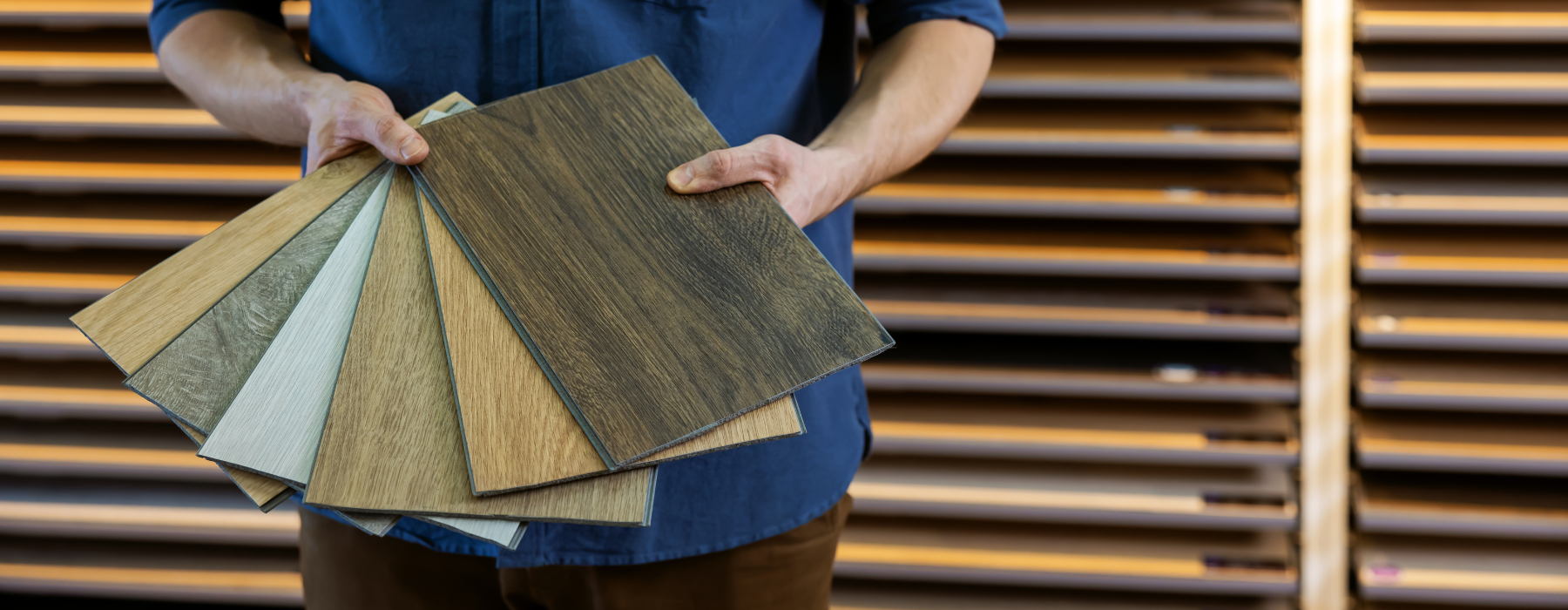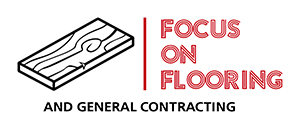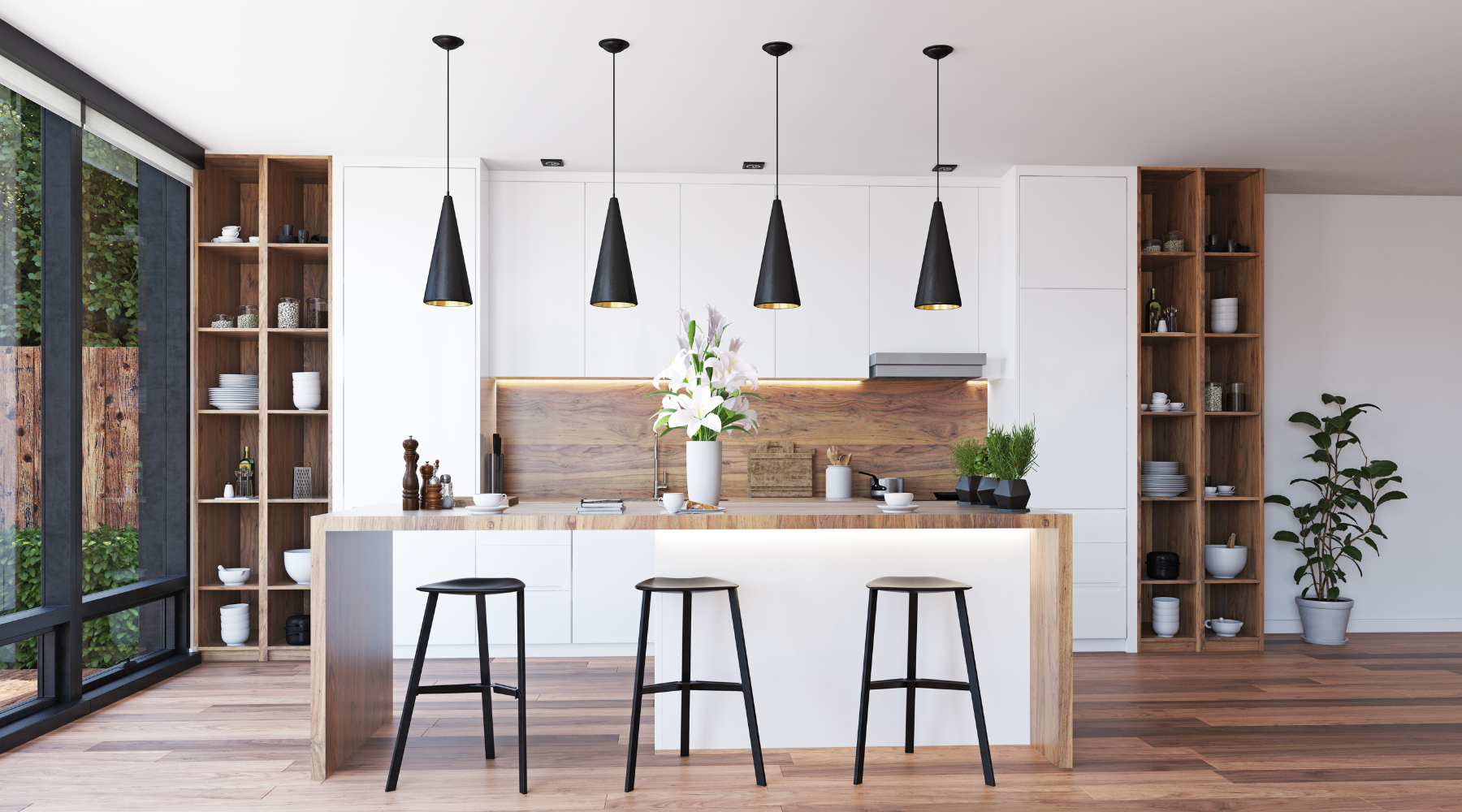The Top 10 Reasons Why Homeowners Renovate Their Kitchen By: Focus On Flooring Toronto In…

Vinyl Flooring: Must-Know Advantages And Disadvantages
Vinyl Flooring: Must-Know Advantages And Disadvantages
By: Focus Flooring Toronto
Vinyl flooring has become a staple in modern homes, offering a perfect blend of affordability, durability, and aesthetics.
In this comprehensive article, we delve into the origin, composition, benefits, drawbacks, interesting facts about the industry, and frequently asked questions surrounding vinyl flooring.
Let’s get right into it.
What Vinyl Flooring Is Made Out Of?
Vinyl flooring is composed of polyvinyl chloride (PVC) – a synthetic material known for its resilience and water-resistant properties.
This composition makes vinyl flooring an excellent choice for areas prone to moisture, such as kitchens and bathrooms. The layers typically include a backing layer, core layer, decorative layer, and a wear layer for added durability.
What Makes Vinyl Flooring Unique?
The uniqueness of vinyl flooring lies in its ability to mimic the appearance of natural materials like wood or stone while providing enhanced durability and easy maintenance.
Its versatility extends to a wide range of styles, colors, and patterns, allowing homeowners to achieve their desired aesthetic without compromising on functionality.
Top 10 Advantages of Vinyl Flooring
1. Cost-Effective
Vinyl flooring stands out for its budget-friendly nature, offering an affordable option for those seeking quality flooring without breaking the bank. The cost-effectiveness makes it an attractive choice for both homeowners and businesses.
2. Durability
With its multi-layered composition, vinyl flooring proves resilient against daily wear and tear. It withstands high foot traffic, making it an ideal flooring solution for busy households or commercial spaces.
3. Water-Resistant
Vinyl’s water-resistant properties make it a preferred choice for areas prone to spills or moisture, such as kitchens and bathrooms. This feature not only ensures longevity but also simplifies cleaning.
4. Easy Maintenance
Maintaining vinyl flooring is a breeze – regular sweeping and occasional mopping are usually sufficient to keep it looking pristine. This low-maintenance characteristic appeals to those with a busy lifestyle.
5. Versatility in Design
Vinyl flooring comes in a myriad of designs, allowing homeowners to choose styles that complement their interior decor. Whether you prefer the look of hardwood, tile, or stone, vinyl provides endless design possibilities.
6. Comfort Underfoot
Unlike some other flooring materials, vinyl offers a soft and comfortable surface underfoot. This feature adds an extra layer of coziness to living spaces.
7. DIY-Friendly Installation
For the avid DIYer, vinyl flooring is a dream come true. Many vinyl products come with user-friendly installation mechanisms, making it possible for homeowners to tackle the installation process themselves.
8. Resistant to Stains and Scratches
The wear layer of vinyl flooring provides resistance against stains and scratches, ensuring the floor maintains its pristine appearance even in high-traffic areas.
9. Environmentally Friendly Options
Some vinyl flooring products are manufactured with eco-friendly materials, contributing to sustainable building practices. Homeowners can choose options with recycled content for a greener footprint.
10. Warmth and Insulation
Vinyl flooring offers good thermal insulation, providing a comfortable surface that stays warm underfoot. This is particularly beneficial in colder climates.
Top 10 Disadvantages of Vinyl Flooring
1. Susceptible to Fading
While durable, vinyl flooring can be susceptible to fading when exposed to prolonged sunlight. This makes it important to consider placement and use of window coverings.
2. Not Biodegradable
The synthetic nature of vinyl makes it non-biodegradable, posing environmental challenges. Proper disposal methods should be considered to minimize ecological impact.
3. Vulnerable to Sharp Objects
Sharp objects can potentially damage the wear layer of vinyl flooring, leading to scratches. Caution is advised, especially in areas prone to such incidents.
4. Limited Repair Options
Unlike hardwood floors that can be sanded and refinished, repairing vinyl flooring often involves replacing the affected area. This can be a drawback in terms of maintenance costs.
5. Can Emit VOCs
Certain vinyl products may release volatile organic compounds (VOCs), potentially impacting indoor air quality. Opting for low-VOC or VOC-free options can mitigate this concern.
6. Not as Luxurious as Natural Materials
While vinyl does an impressive job mimicking natural materials, some homeowners may prefer the authenticity and luxurious feel of genuine hardwood or stone.
7. Prone to Denting
Heavy furniture or sharp impacts can lead to dents in vinyl flooring, affecting its aesthetic appeal. Using furniture pads and exercising caution can prevent this issue.
8. Limited Return on Investment
While cost-effective initially, vinyl flooring may not offer the same return on investment as premium flooring materials when it comes to property resale value.
9. Challenging to Repair Seamlessly
Repairing vinyl flooring, especially in the case of significant damage, can be challenging to achieve seamlessly. This might result in visible patches or color variations.
10. Environmental Concerns in Production
The production of vinyl flooring involves the use of fossil fuels and chemicals, raising concerns about its overall environmental impact during the manufacturing process.
Interesting Facts About the Vinyl Flooring Industry
1. Rise in Popularity Since the 1950s
Vinyl flooring gained widespread popularity in the 1950s and has since become a staple in residential and commercial spaces worldwide.
2. Diverse Application in Commercial Spaces
Vinyl flooring is extensively used in commercial spaces such as hospitals and schools due to its durability, hygienic properties, and diverse design options.
3. Evolution of Luxury Vinyl Plank (LVP)
The industry has witnessed the emergence of Luxury Vinyl Plank (LVP), a premium vinyl flooring option that closely replicates the look and feel of hardwood.
4. Technological Advances in Printing
Advancements in printing technology allow vinyl flooring manufacturers to create realistic patterns and textures, enhancing the visual appeal of the flooring.
5. Contribution to Green Building Practices
Some vinyl flooring products are manufactured using recycled materials, contributing to the green building movement and sustainable construction practices.
6. Introduction of Waterproof Vinyl Flooring
In response to consumer demands, waterproof vinyl flooring options have been developed, providing enhanced protection against water damage.
7. Wide Range of Installation Methods
Vinyl flooring can be installed using various methods, including glue-down, click-lock, and loose lay, providing flexibility in installation options.
8. Role in Allergy Prevention
The smooth and seamless surface of vinyl flooring minimizes the accumulation of dust, making it an allergy-friendly flooring choice for many.
9. Incorporation of Innovative Wear Layers
Manufacturers continually innovate wear layers, enhancing the durability and longevity of vinyl flooring products.
10. Customization Options Abound
The vinyl flooring industry offers extensive customization options, allowing consumers to personalize their flooring choices to suit their unique preferences.
FAQs
Can Vinyl Flooring Be Installed in Basements?
Yes, vinyl flooring is an excellent choice for basements due to its water-resistant properties. However, it’s crucial to address any existing moisture issues before installation.
Is Vinyl Flooring Suitable for Kitchens?
Absolutely. Vinyl flooring’s resistance to water and stains makes it a popular choice for kitchens. It’s easy to clean and provides a comfortable surface for prolonged standing.
Can Vinyl Flooring Mimic the Look of Hardwood?
Yes, one of the standout features of vinyl flooring is its ability to closely mimic the appearance of hardwood, offering a cost-effective alternative.
How Long Does Vinyl Flooring Typically Last?
The lifespan of vinyl flooring depends on factors like quality, maintenance, and foot traffic. On average, well-maintained vinyl flooring can last 10-20 years.
Can Vinyl Flooring Withstand Pet Scratches?
Vinyl flooring is generally resistant to pet scratches, offering a pet-friendly flooring solution. However, large or sharp claws may cause damage over time.
Is Vinyl Flooring Suitable for DIY Installation?
Yes, many vinyl flooring products are designed for easy DIY installation, making it a popular choice for homeowners looking to tackle projects themselves.
Can Vinyl Flooring Be Installed Over Existing Flooring?
In some cases, yes. However, it’s essential to follow manufacturer guidelines and ensure the existing flooring is in good condition without any issues like unevenness or moisture.
Are There Environmentally Friendly Vinyl Flooring Options?
Yes, eco-conscious consumers can choose vinyl flooring products with recycled content, contributing to more sustainable building practices.
Can Vinyl Flooring Be Repaired if Damaged?
Minor damages like scratches can often be repaired with simple solutions. However, significant damage may require replacing the affected area.
How Does Vinyl Flooring Compare to Other Flooring Materials?
Vinyl flooring offers a compelling mix of affordability, durability, and design versatility. It competes favorably with other materials like laminate and hardwood, catering to diverse consumer preferences.
Conclusion
In conclusion, vinyl flooring emerges as a practical and stylish flooring solution, catering to the needs of modern homeowners.
From its humble origins to the latest industry trends, the versatility of vinyl flooring continues to make it a favorite choice for those seeking a balance between aesthetics and functionality.
If you have any questions about our article “Vinyl Flooring: Must-Know Advantages And Disadvantages” or vinyl flooring installation, contact ralph@focusonflooring.ca or chat with us on social media or (647) 945-8780.

